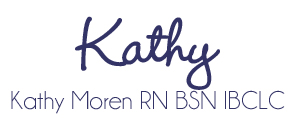I find myself increasingly sad over the current state of affairs in our county. Fiscally, I am a Conservative. Socially, I am a Liberal. I am aware that this makes no sense and have four teenage sons that like to remind me of that every chance they get. I am a huge fan of the Affordable Care Act. The Essential Health Benefits have made it possible for women to have insurance pay for our services and have provided an access to healthcare that I have been fighting for in Rhode Island for over a decade. The possibility that this, maternity, and mental health care could be taken away is abhorrent to me. Public health in America, now a preventative health care system instead of a sick care system, is on the verge of being dismantled.
So every day, I am looking for little glimmers of progress, kindness and random people fighting the good fight. And I do see it. Everywhere I go, people are being kind, smiling, talking to each other, opening doors, being patient and respectful. I go out of my way to connect with people I come across. I am sure I don’t always do a stellar job, but when it isn’t reciprocated, I am crushed. My husband, who travels all over the country and to Europe, sees the opposite. People who are short tempered, rude, cold and impatient are the norm for him. Europeans are amazed at what is happening in our country, trying not to laugh in his presence at the freak show they are witnessing abroad. Our home has become a refuge for some peace. That is, until we turn on the TV.
Here in our tiny state, I have met a local hero who gives me hope that good things are happening all over our country. His name is Keith Cooper and he is the Executive Director of Beautiful Day, a non-profit located in Providence. Beautiful Day seeks to build on ramps to employment for recently arrived refugees. They own a social enterprise - an artisan granola company - and nourish the health of their community by providing first jobs and on the job training for highly vulnerable populations. Beautiful Day produces delicious locally-made food products and are making plans for their own granola kitchen that can double as an incubator to help refugees start their own businesses. Their ultimate goal is to develop a transferable model that could serve vulnerable populations facing daunting job-entry barriers. They seek to empower people, whose lives have been shattered, to move forward, one day at time.
Keith has reminded me what is great about our country. We help people in need. We have a right to free speech and to advocate for those vulnerable populations who can’t advocate for themselves. He has inspired me to do what I can to make a difference. There are opportunities all around us and I am going to take advantage of them. I will support local refugees by buying Keith’s granola. I will finally start the non-profit I have always planned on, to provide lactation support for those who can’t afford it or whose insurance doesn’t cover it. It will be my back up plan if the Essential Health Benefits of ACA are repealed, so that access to this type of care is not interrupted. And I will stay open to other ways to take part in the many things that make this country great, rather than focusing on the negative I am bombarded with daily. Will you join me?


















